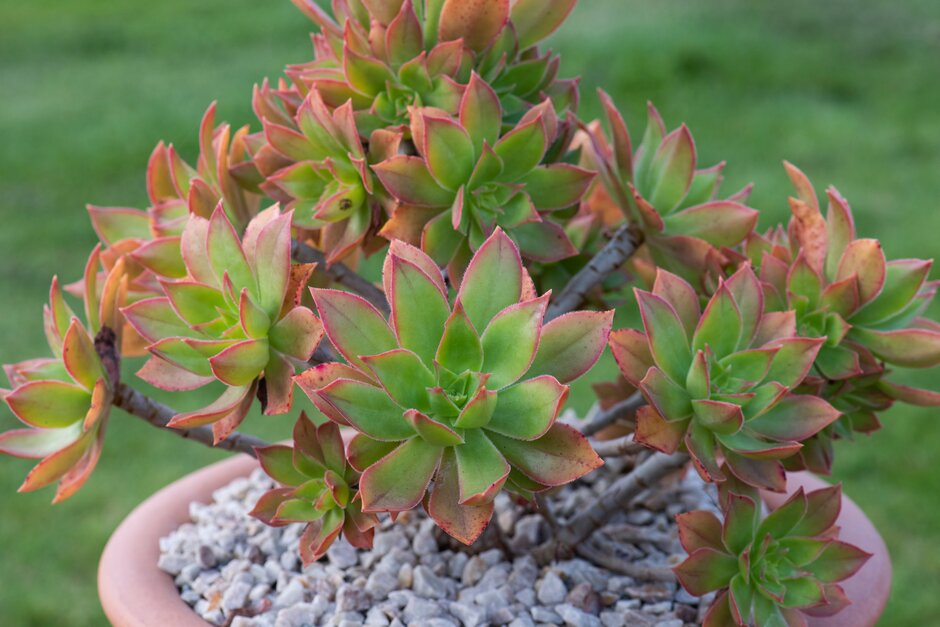Aeonium leucoblepharum
East African tree houseleek
An upright, branching succulent to about 75cm with rosettes of pointed, spoon-shaped, fleshy, light bluish-green leaves with a central, dark pink stripe, older leaves developing a pink or brown flush in bright sunlight
Size
Ultimate height
0.5–1 metresTime to ultimate height
2–5 yearsUltimate spread
0.1–0.5 metresGrowing conditions
Moisture
Well–drainedpH
Acid, Alkaline, NeutralColour & scent
| Stem | Flower | Foliage | Fruit | |
| Spring | Brown Green Pink | |||
|---|---|---|---|---|
| Summer | Brown Green Pink | |||
| Autumn | Brown Green Pink | |||
| Winter | Brown Green Pink |
Position
- Full sun
Aspect
South–facing or West–facing
Exposure
Sheltered Hardiness
H1CBotanical details
- Family
- Crassulaceae
- Native to GB / Ireland
- No
- Foliage
- Evergreen
- Habit
- Bushy
- Genus
Aeonium are evergreen succulents often of shrubby habit, with fleshy leaves in terminal rosettes on the shoots, and racemes or panicles of small, star-shaped flowers with numerous narrow petals
- Name status
Correct
- Plant range
- Yemen E Africa
How to grow
Cultivation
Grow under glass in a standard cactus compost, in bright, filtered light. Grow outdoors in summer or very mild coastal locations. When in growth water moderately and feed every two or three weeks with a balanced liquid feed. Keep almost dry in winter. See further houseplant cacti and succulent cultivation advice
Propagation
Propagate by cuttings of rosettes kept at 18°C and barely moist until rooted
Suggested planting locations and garden types
- Houseplants
- Patio and container plants
- Bedding
- Conservatory and greenhouse
Pruning
No pruning required
Pests
May be suscetpible to aphids, mealybugs and vine weevil
Diseases
Generally disease-free
Get involved
The Royal Horticultural Society is the UK’s leading gardening charity. We aim to enrich everyone’s life through plants, and make the UK a greener and more beautiful place.
